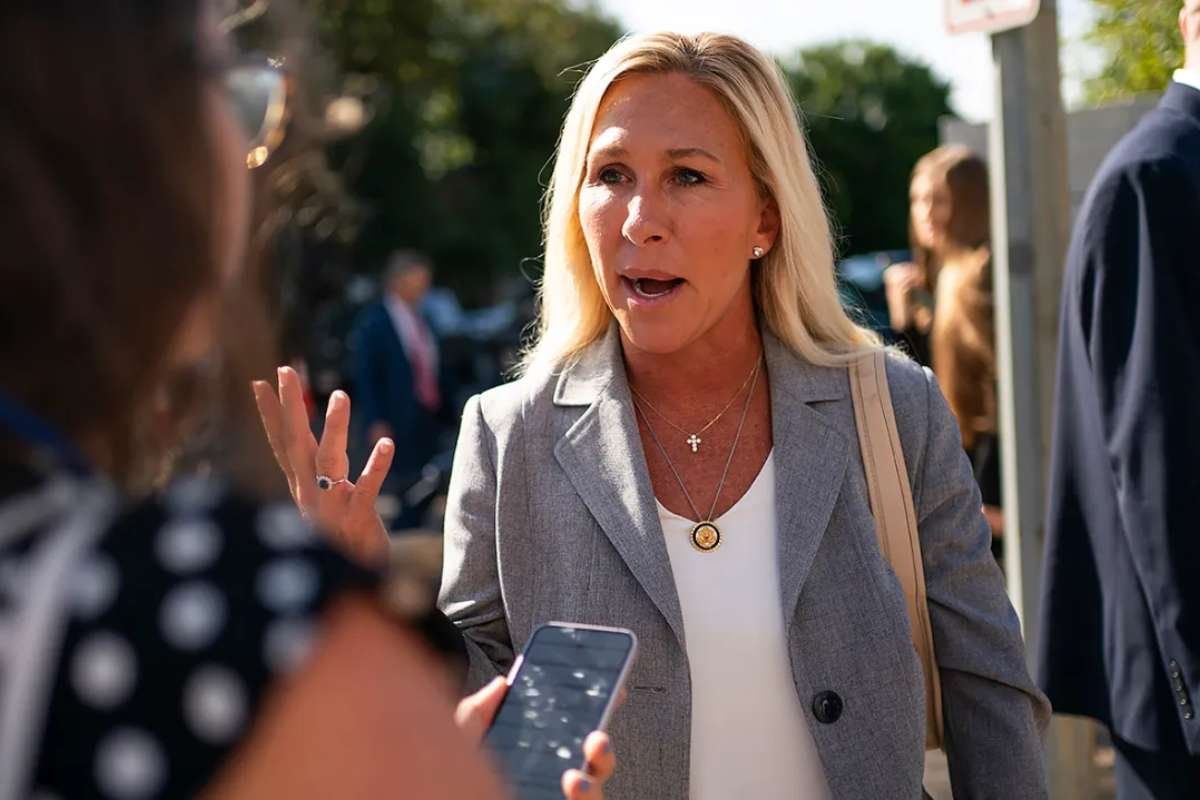Key Points:
- Greene Breaks with GOP: Marjorie Taylor Greene urges extending ACA tax credits, defying party leaders.
- Shutdown Standoff: Dispute over ACA funding fuels ongoing government shutdown.
- Public Impact: Millions risk higher premiums as GOP divisions deepen.
As the U.S. government shutdown stretches into its second week, Republican Representative Marjorie Taylor Greene has intensified tensions within her own party by taking a public stand on health care funding. Greene, known for her vocal conservatism, openly diverged from GOP leadership over the expiration of key Affordable Care Act (ACA) tax credits—a central issue entangled in the current funding impasse.
Although Greene remains opposed to the ACA, she warned that allowing enhanced tax credits to lapse could lead to insurance premiums doubling by 2026. Emphasising the strain this would impose on working families, Greene said the issue “is not about party politics but about survival.” She added that even her own family could feel the impact if Congress fails to act.
Her comments mark one of the most significant breaks within the Republican ranks during this shutdown, as most party leaders continue to resist linking ACA funding extensions to the broader budget negotiations. Marjorie Taylor Greene’s stance adds another layer of division to a party already struggling to maintain unity amid intense public scrutiny.
Shutdown Politics Deepen As Party Divisions Surface
The ongoing government shutdown, now entering its eighth day, has turned into a high-stakes political standoff between Republicans and Democrats. The primary sticking point centres on whether Congress should renew the ACA’s enhanced tax credits, which were introduced during the pandemic to make health insurance more affordable.
Democrats argue that the credits must be extended immediately to prevent millions from facing steep premium increases or losing coverage altogether. Many Republicans, however, insist on fiscal restraint, arguing that automatic extensions would further inflate the federal deficit.
Marjorie Taylor Greene’s open criticism of her own party comes amid growing internal frustration and inconsistent messaging from Republican leaders. Former President Donald Trump’s fluctuating comments—initially supporting a health care compromise and later walking back his stance—have added to the confusion. Party moderates are now calling for a pragmatic solution to avoid long-term political damage, while hardliners demand a firm stand against additional spending.
Behind the scenes, informal bipartisan discussions are reportedly underway, but progress remains limited. Both chambers of Congress have yet to schedule votes on any proposal that could reopen the government or address the health care impasse.
Real-World Impact and Political Consequences
The consequences of the stalemate are already rippling across the country. If Congress fails to extend the tax credits soon, millions of Americans could face skyrocketing premiums when open enrollment begins on November 1. Health policy experts warn that such a scenario could result in widespread coverage losses, particularly among low- and middle-income households.
Community health centres, many of which rely on federal grants, are also beginning to feel the pressure. Some have reported contingency plans to reduce hours or delay patient services if the funding freeze continues.
Politically, the shutdown is testing the Republican Party’s internal cohesion and public image. Marjorie Taylor Greene defiance underscores the tension between ideological rigidity and the practical needs of constituents—a dynamic that could shape upcoming legislative battles and influence the 2026 midterm elections.
As both parties brace for public backlash, the standoff shows little sign of resolution. With each passing day, the shutdown not only jeopardises government operations but also amplifies the broader debate over how far political loyalty should go when real-world consequences are at stake.









